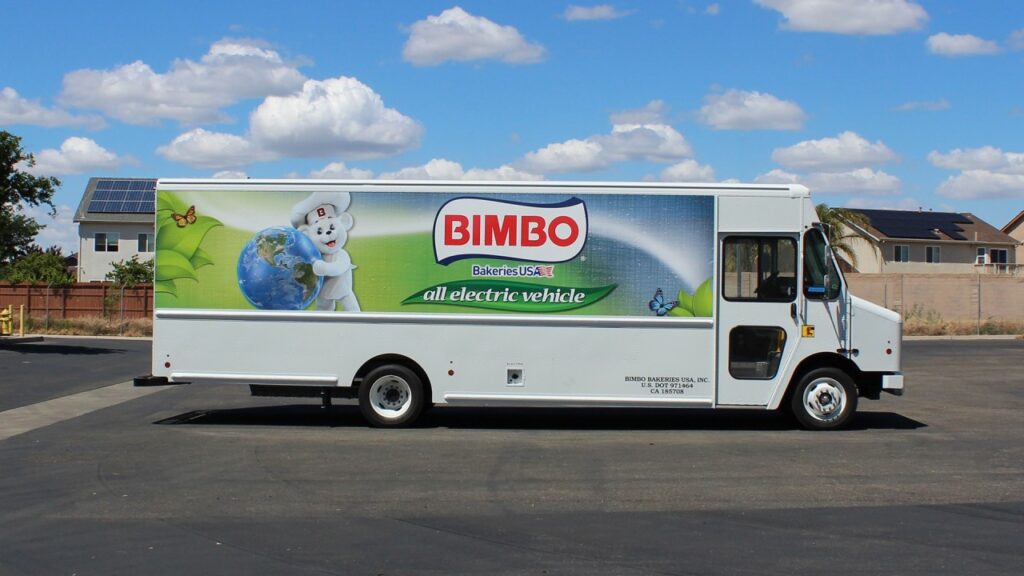Conscious Consumers and the Case for Sustainable Fleets

While it’s true that regulatory requirements are nudging some of the more reluctant entities in corporate America down the road to sustainability, it is the collective sentiment — and purchasing action — of climate conscious consumers that will continue to fuel and accelerate the demand for sustainable products, services and transportation.
Much has been written about the role of government regulation in driving adoption of electric trucks. Indeed, regulation, combined with financial incentives, has been a critical 1-2 punch in advancing both the demand and supply.
Less talked about, however, is the impact of changing consumer attitudes and actions about corporate sustainability. Indeed, it may soon become the driving force behind greater, and more rapid, adoption of electric trucks.
Climate-conscious Consumers
According to research by the Harvard Business Review in September 2023, sustainability demands are rising among consumers based on three factors:
1) Trust drives behavior and, ultimately, business outcomes;
2) Sustainability promotes trust, particularly among younger generations, and;
3) Younger generations will soon have most of the purchasing power in the U.S.
YouGov data released in May showed 27% of Americans are willing to spend more on sustainable products, while the same dataset showed they generally think industry as a whole is not doing enough to minimize its environmental impact.
It is these attitudes that may be driving the push to electrification of commercial fleets just as policy and government regulations start to have a stronger impact.
The research clearly shows that consumer sentiment is already driving cross-generational demand for sustainable products. Given its potential impact on emissions and pollution, the move toward sustainable logistics through fleet electrification could be the next big thing.
Voting With Dollars
The HBR research concluded that, “When Gen Z and Millennial customers believe a brand cares about its impact on people and the planet, they are 27% more likely to purchase it than older generations are — a clear measure of sustainability’s power to drive buying decisions in this group.”
And this cohort extends its influence outward. A 2022 report produced by First Insight and the Baker Retailing Center at the Wharton School of the University of Pennsylvania found that the sustainability imperative is being driven by Gen Z consumers, both through their own buying power, and their ability to influence the choices of their Gen X parents and baby boomer grandparents.
Forecast data shows that the younger generations — Gen Z and millennial consumers — will soon wield the most buying power in the U.S. and that Gen Z consumers will eclipse the purchasing power of baby boomers by 2030.
While many strides have been made to make products themselves more sustainable — such as organic fabrics, recycled plastics and renewable energy-based manufacturing — the reality is that these products all have to get to market. And that means transportation, which also means emissions.
A Here-now, Clean Solution
Medium- and heavy-duty (MHD) trucks are the backbone of commercial logistics and the lifeblood of consumer shipping in the U.S. According to a CALSTART white paper released in January 2024, MHD trucks are responsible for 29% of all greenhouse gas (GHG) emissions, 45% of all nitrogen oxide emissions and 57% of all fine particulate air pollution, despite the fact that they represent only 10% of all vehicles on the road. What’s more, the data shows that because of their proximity to shipping routes, warehouses and ports, our most vulnerable communities are disproportionately affected.
CALSTART notes that these vehicles are a top priority for decarbonizing U.S. transportation and mitigating transportation-related GHG emissions. The good news? “More than 160 models of zero-emission trucks (ZETs) are now available from over 40 original equipment manufacturers (OEMs), and as of June 2023, more than 17,500 ZETs have been deployed in the United States,” according to CALSTART.
Brands everywhere are taking notice, and companies, including those within the consumer packaged goods industry, are taking steps to curtail their carbon footprints through the electrification of their own fleets, and those of their chosen shipping providers.
In May 2024, John Dean, President for PepsiCo Beverages North America, West Division, said, “Our fleet electrification is an important part of our pep+ (PepsiCo Positive) strategy and illustrates how sustainability is a core business strategy at PepsiCo — good for the planet, good for our business, and good for the communities we serve.”
As more consumers take notice, more companies are wearing a commitment to sustainability on their sleeves, including Cintas Corp., which was named to the inaugural USA Today Climate Leader 2023 list. Cintas was cited for a list of initiatives, including the rollout of its first electric fleet of vehicles, in which Motiv was honored to play a part.
“Rallying around our sustainability vision — A Shared Drive for Better — has been important for us and our business,” Cintas President and CEO Todd Schneider said in a company press release. “Our history of identifying opportunities and solutions through our culture of positive discontent has had a major impact on lowering our environmental impact.”